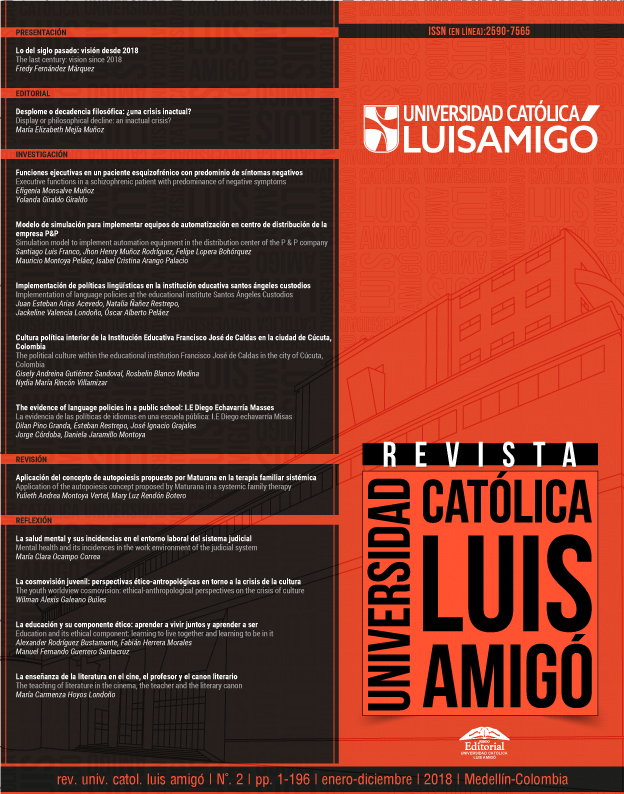The youth worldview cosmovision: ethical-anthropological perspectives on the crisis of culture
DOI:
https://doi.org/10.21501/25907565.3049Keywords:
Youth worldview, Humanism, Crisis, Moral anthropology.Abstract
The youth worldview cosmovision is a concept that embraces the human identity of the new generations. The way this is evidenced is from the crises of humanity, culture and education, which encourage reflection on the concrete reality of young people, their emotions and their perspectives. In our educational institutions, whether they are public or private, basic, middle or higher education, these problems are visualized in a very concrete way that goes beyond problems, they are new paradigms that ethics and anthropology must address. Although in some cases that marked moralism and the anthropology of medieval times it seems, are those that emphasize what to do with humanity, it is quite interesting, at least in some modern time actions that a new type of customs and ways of thinking will surely shape a more humanist and a freer generation.Downloads
References
Arendt, H. (1995). De la historia a la acción. Barcelona, España: Paidós.
Arendt, H. (1996). Entre el pasado y el futuro. Barcelona, España: Península.
Arendt, H. (2003). Eichmann en Jerusalén. Barcelona, España: Editorial Lumen.
Arendt, H. (2006). Sobre la violencia. Barcelona, España: Alianza Editorial.
Bauman, Z. (2005). Los retos de la educación en la modernidad líquida. Barcelona, España: Gedisa.
Dilthey, W. (1974). Teoría de las concepciones del mundo. Madrid, España: Revista de Occidente.
Galeano, W. (2016). El ethos de la escuela: Comunicación, cultura y educación. Medellín. Fondo editorial Luis Amigó.
Hoyos-Vásquez, G. (2000). Formación ética, valores y democracia. Bogotá, Colombia: Colciencias.
Lyotard, J. F. (2001). La posmodernidad (explicada a los niños). Barcelona, España: Gedisa.
Scheler, M. (2002). El puesto del hombre en el cosmos. Quito: Editorial Kilón.
Vattimo, G. (1998). La sociedad transparente. Barcelona, España: Paidós.
Downloads
Published
How to Cite
Issue
Section
License
PROPIEDAD INTELECTUAL
Los autores son moral y legalmente responsables del contenido de sus artículos, así como del respeto a los derechos de autor. Por lo tanto, éstos no comprometen en ningún sentido a la Universidad Católica Luis Amigó.
La reproducción de los artículos se regirá conforme a lo descrito en http://creativecommons.org/licenses/by-nc-sa/4.0/

